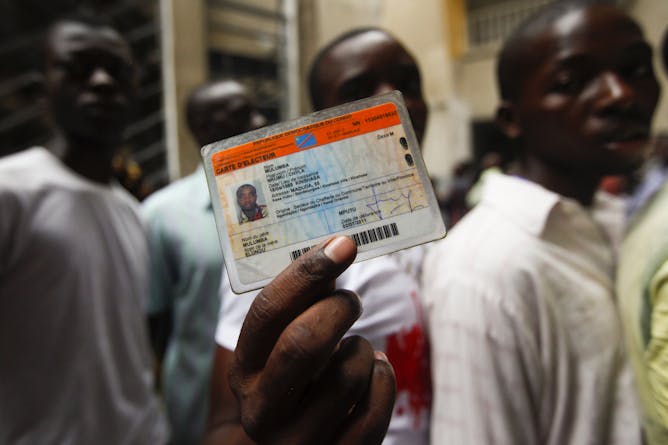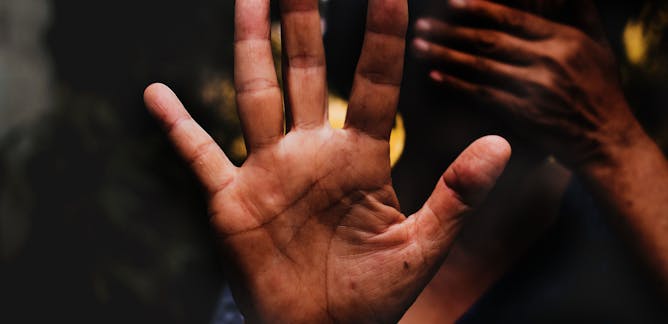|
If everything goes according to plan, the Democratic Republic of Congo will hold its much-anticipated presidential election on December 23. The poll is significant because it will bring an end to Joseph Kabila’s iron grip. Reuben Loffman writes that while this is a good thing, a new president might not deliver the change that the Congolese people are hoping for.
Sunday marks the day on which global campaigns are launched to highlight violence against women – still one of the most widespread human rights violations in the world. In Kenya, it’s estimated that 50% of women have experienced violence at the hands of their partners. One factor that could explain this is how men perceive their social status, as Michael Goodman writes. From South Africa Shanaaz Mathews sets out why it’s important to adopt an integrated approach to understanding the problem.
|

Voters during the DRC’s last elections in Kinshasa.
Dai Kurokawa/EPA
Reuben Loffman, Queen Mary University of London
It's been an eventful year for the Democratic Republic of Congo as the country prepares for elections.
|
Politics + Society
|

Michael Goodman, The University of Texas Medical Branch
A study in Kenya found that the lower men ranked themselves in society, the more violent they were with their intimate partners.
| |

Shanaaz Mathews, University of Cape Town
There's increasing global recognition that violence against women and children often occur together in homes.
|
|
|
Health + Medicine
|
-
Mamadou Coulibay, Université des sciences, des techniques et des technologies de Bamako
The fight against malaria needs scientific innovation. But community buy-in is just as important.
|
|
Environment + Energy
|
-
Hubert Cheung, The University of Queensland; Duan Biggs, Griffith University; Yifu Wang, University of Cambridge
Trading rhino horn has been legalised in a bid to undercut poachers and the black market.
|
|
From our international editions
|
-
Karen Hind, Durham University; Charlotte Roberts, Durham University
Analysis of bones from over hundreds and thousands of years ago suggests that our skeleton today is more fragile than that of our ancestors.
-
Rebecca Yearling, Keele University
Even Samuel Johnson found some of Shakespeare's violent scenes unwatchable.
|
|